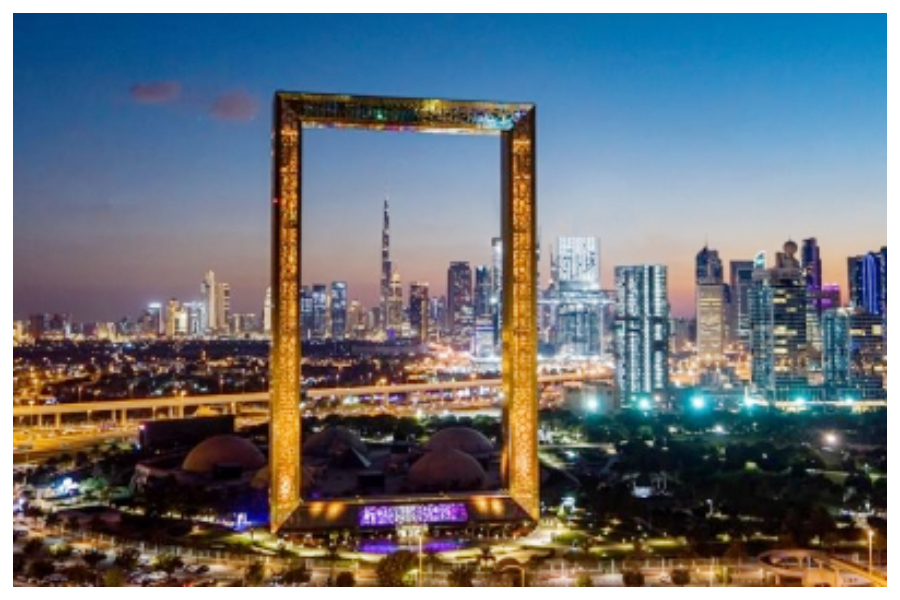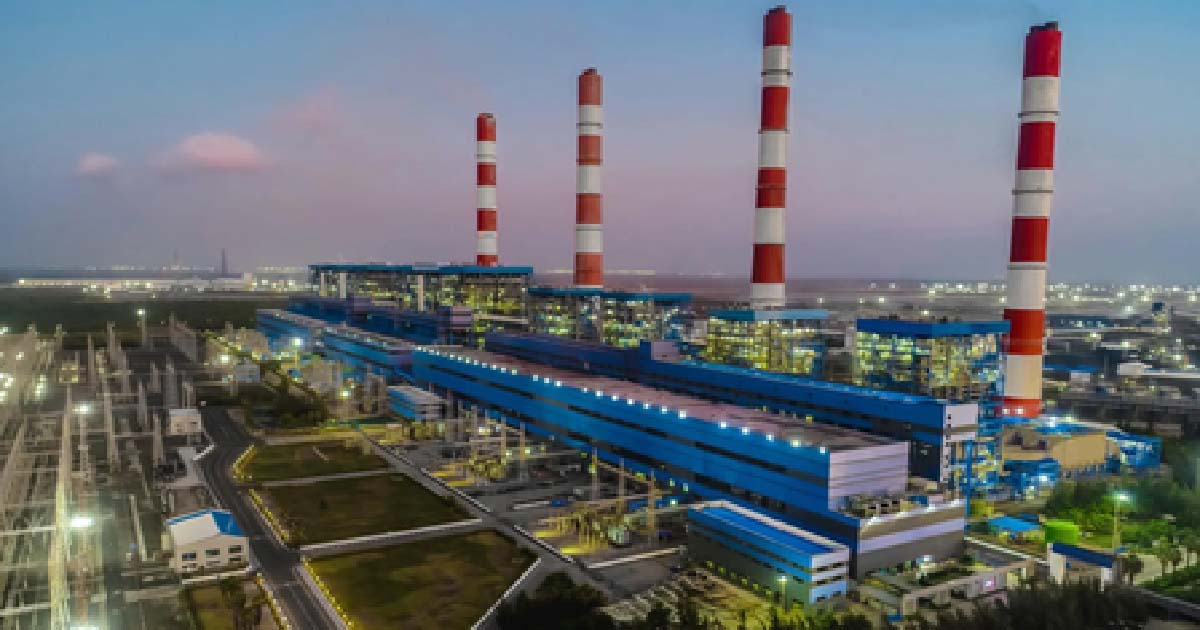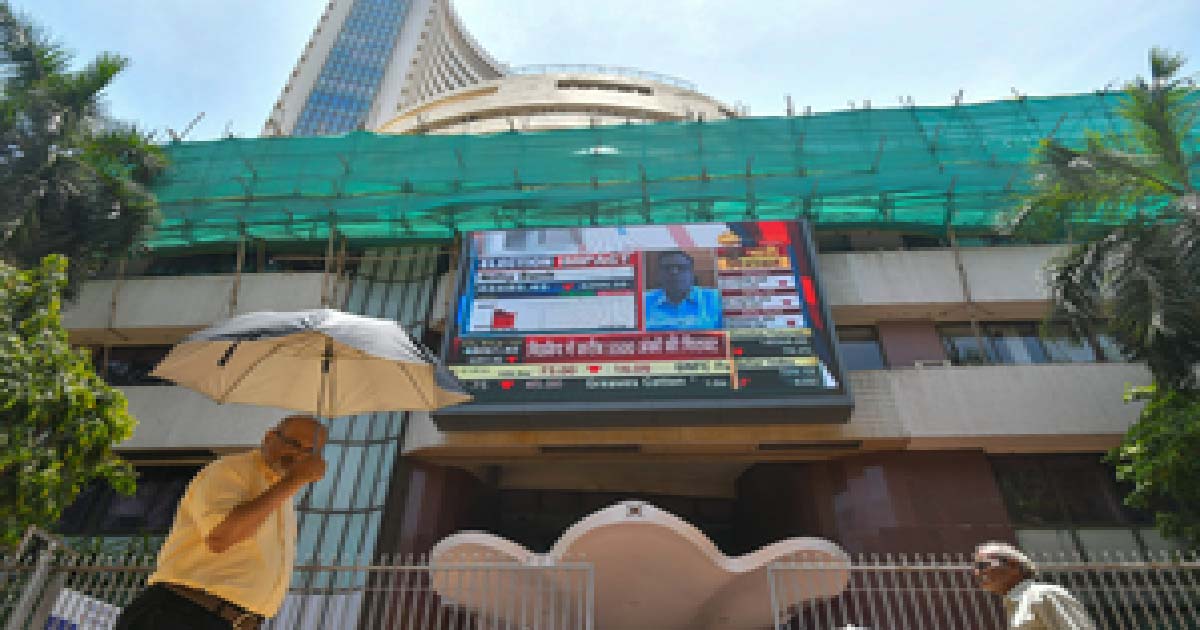Business
Dubai welcomes 6.17 mn int’l visitors from Jan-May

Dubais successful tourism rebound continues to inspire global tourism recovery with the city welcoming 6.17 million international overnight visitors from January to May 2022, a 197 per cent year-on-year (YoY) increase from the same five-month period in 2021, which saw the destination attracting just over 2 million international travellers.
The latest tourism data was revealed by Dubai’s Department of Economy and Tourism (DET) at its first ‘City Briefing’ for 2022, a bi-annual event that provides an in-depth industry outlook to stakeholders and partners, and discusses future strategies to further reinforce the city’s position as a global hub for business, investment, talent and tourism.
The event was attended by more than 1,200 key executives from across the tourism ecosystem including aviation, travel, hospitality and retail sectors.
Helal Saeed Almarri, Director General, Dubai’s Department of Economy and Tourism (DET), commented: “The remarkable vision and leadership of His Highness Sheikh Mohammed bin Rashid Al Maktoum, Vice President and Prime Minister of the UAE and Ruler of Dubai, have always been an inspiration to us all, and this is reflected in the city’s continued success, as we focus on enhancing its position as a global hub for economy and tourism. We are building on the massive momentum generated by the hugely successful Expo 2020 to drive growth across all our tourism pillars from cultural to culinary experiences, while working towards achieving the ambitious goal of making Dubai the most visited destination and the city of the future that will be the best place in the world to live and work.
“As we look ahead to the remainder of 2022 and beyond, we will harness the key elements that have ensured the industry’s steady growth year after year since we reopened to international visitors in 2020, providing an unparalleled diverse destination offering that offers unique value and memorable experiences for our guests. This can only happen with the support of our stakeholders, and we are counting on them to continue playing a pivotal role in facilitating growth, as well as restoring confidence and trust among travellers in Dubai as a safe destination.”
The new tourism figures from DET show that overall, Dubai hotels maintained an average occupancy level of 76 per cent from January to May 2022 compared to 62 per cent during the corresponding period in 2021.
According to data from hotel management analytics firm STR, Dubai ranked No.1 globally in hotel occupancy, ahead of other international destinations including New York (61 per cent), London (60 per cent) and Paris (57 per cent), for the January-April 2022 period.
Issam Kazim, CEO, Dubai Corporation for Tourism and Commerce Marketing (DCTCM), opened the day’s programme by providing an overview of the industry with a detailed presentation that featured valuable visitor and marketing insights, in addition to an update on the communications activities that are underway across key international markets that include a novel campaign designed to encourage more families and global travellers to select the city for their summer vacation.
The ‘Stay More, Pay Less’ campaign is a citywide initiative supported by over 60 hotels and resorts, providing outstanding value to international travellers this summer. The promotion provides guests an amazing offer — stay for seven nights at participating hotels and resorts and pay for only five nights or stay for five nights and pay for only three nights stay.
Kazim further said: “Our constant dialogue with stakeholders and partners is crucial in ensuring that we are all aligned with the collective efforts being made under the guidance of our visionary leadership to ensure the city stays at the forefront of the world’s leading travel destinations. Our collaboration with stakeholders also provides them an opportunity to take advantage of our diverse campaigns and activities that are designed to sustain Dubai’s global appeal and keep the city top-of-mind as a must-visit destination. Dubai’s positive performance is also testament to the city’s resilience and the success of our recovery strategy. As we strive to leverage a robust domestic market and the growing international visitation, we are confident that the summer season will serve as an ideal launchpad to further accelerate momentum across the industry.”
He also briefed participants on the global campaigns, which have captivated audiences all over the world and shone a light on the city and all of Dubai’s attractions, from Dubai Presents, the thrilling campaign, which highlights �must visit’ attractions across the city through trailers featuring Hollywood and Bollywood stars, to Dubai being selected as the No.1 Global Destination in Tripadvisor Travellers Choice Awards 2022.
The event also highlighted the drive to position Dubai as a global gastronomy hub that has received a strong boost with the launch of Michelin Guide Dubai and the arrival of renowned fine-dining food critique brand Gault&Millau, both important additions to the city’s fast evolving gastronomy scene.
With its multifaceted offering, Dubai remains a popular destination, further validating the successful global campaigns run by DET throughout the year. Since Q4 2021, there have been over 200 million searches for travel to Dubai, and in May 2022 searches and bookings for the destination reached almost pre-pandemic levels.
Ahmed Al Khaja, CEO of Dubai Festivals and Retail Establishment (DFRE), presented key highlights of Dubai’s Retail Calendar 2022, packed with iconic citywide festivals, events, activations and experiences including the much-awaited Dubai Summer Surprises, the region’s biggest summer festival which is celebrating its 25th edition this year, from July 1 to September 4, as well as next month’s Eid-al-Adha celebrations and the Dubai Fitness Challenge, which kicks off in October.
“With our unbeatable summer proposition, Dubai offers more value than any comparable destination with its world class infrastructure, the vast scope of its events and entertainment centres and hassle-free entry process, making it the summer destination of choice for families. Besides, our continuous collaboration with stakeholders and partners has paved the way for Dubai to offer a unique holiday package, allowing families, residents and visitors to avail themselves of innovative promotions, incentives and diverse deals this summer in Dubai,” Ahmed Al Khaja, CEO of DFRE, said.
Business
How Adani’s Rs 30,000 crore Bhagalpur power project will change Bihar’s fortunes forever

Ahmedabad/New Delhi, Nov 7: The 2,400 MW Bhagalpur Power Project, being developed by the Adani Group with an outlay of Rs 30,000 crore, marks a turning point in Bihar’s economic story — bridging its energy gap, reviving industry, and creating opportunities for its 13.5 crore citizens.
For the first time in decades, the state is witnessing a wave of serious private investment.
The plain fact is that for over half a century, Bihar has remained on the margins of India’s industrial story. Despite its demographic strength and strategic location, the state has struggled to attract private investment or build a sustainable industrial base.
The data tell a sobering truth: Bihar’s per capita GDP stands at barely $776, while its per capita power consumption — 317 kilowatt hours (kWh) — is the lowest among major Indian states.
In contrast, Gujarat consumes over 1,980 kWh per capita and has a GDP per capita of $3,917.
This is not a mere coincidence. Power and prosperity move together. Where there is reliable electricity, industries grow, jobs are created, and incomes rise.
Where there isn’t, human potential migrates — literally. Bihar today supplies nearly 34 million workers to other states; its youth are forced to seek livelihoods elsewhere because industry within the state has no power to thrive.
It is against this backdrop that the Bhagalpur (Pirpainti) Power Project, being developed by the Adani Group with an investment commitment of Rs 30,000 crore, takes on historic significance. It is not just a project — it is Bihar’s opportunity to plug into India’s growth grid and finally claim its share of industrial progress.
Bihar has seen little private industrial activity in half a century. In the past five years alone, it has recorded virtually no new large-scale projects. The state’s dependence on agriculture remains high — nearly 50 per cent of its working population is engaged in farming, forestry, or fishing, while only 5.7 per cent are employed in manufacturing.
The 2,400 MW Bhagalpur Power Project, originally conceived by the Bihar State Power Generation Company Ltd (BSPGCL) in 2012, was revived by the government in 2024 through a transparent e-bidding process after earlier attempts failed.
Four credible bidders — Adani Power, Torrent Power, Lalitpur Power Generation, and JSW Energy — participated. Adani Power emerged as the lowest bidder at Rs 6.075 per kWh, a tariff lower than comparable bids in Madhya Pradesh (Rs 6.22–Rs 6.30 per kWh).
Notably, no land transfer was involved. The land, acquired over a decade ago for the project, remains fully owned by the Bihar government, leased at a nominal rent under the Bihar Industrial Investment Promotion Policy 2025. After the project term, it reverts automatically to the state.
In an era where investor confidence depends on transparency and governance, the Bhagalpur model stands out as a template for responsible investment — balancing public ownership with private efficiency.
Bihar’s electricity demand has grown sharply in recent years, but supply has not kept pace. The state’s installed generation capacity of about 6,000 MW lags behind its peak demand of 8,908 MW (FY25), forcing it to import power from the national grid.
According to the Central Electricity Authority (CEA), the demand is projected to almost double to 17,097 MW by FY35. Without new generation projects, the state risks widening its energy deficit — limiting industrial expansion, weakening job creation, and constraining overall growth.
The Bhagalpur project can help fill this critical gap. By adding 2,400 MW to Bihar’s grid, it will supply nearly one-fourth of the state’s projected additional power needs over the next decade, according to people close to the development.
Moreover, infrastructure investments of this magnitude generate vast employment. As housing and infrastructure expert V. Suresh notes, every Rs 1 crore invested in infrastructure creates 200–250 man-years of employment across 70 trades.
By that metric, the Bhagalpur project alone could create millions of man-days of work — offering Bihar’s unskilled and semi-skilled workers local opportunities in construction, logistics, operations, and allied services.
According to people in the know, a reliable power supply will also open the door to downstream industries, expansion of manufacturing zones, and the development of logistics and transport corridors—unlocking Bihar’s potential in food processing, textiles, engineering, and MSMEs.
Bihar’s challenge has never been its people — it has been its power. The Bhagalpur project signals a crucial shift in the state’s development trajectory: from subsidy-driven survival to investment-led growth. It embodies what Bihar needs most — confidence from credible investors, infrastructure that scales, and energy that empowers.
For too long, Bihar’s youth have left home to light up other states’ factories and cities. The Bhagalpur project could finally begin to reverse that flow — bringing power, purpose, and prosperity back to where they belong.
Business
Sensex, Nifty open sharply lower amid negative global cues

Mumbai, Nov 7: The Indian benchmark indices opened with notable losses on Friday, amid weak global cues and FII selling.
As of 9.25 am, Sensex was down 532 points, or 0.64 per cent, at 82,778 and Nifty dipped 162 points, or 0.64 per cent, to 25,347.
The broadcap indices outperformed benchmarks in terms of losses, with the Nifty Midcap 100 down 0.89 per cent and the Nifty Smallcap 100 losing 1.26 per cent.
SBI Life Insurance, Trent, Apollo Hospitals, ICICI Bank were among the major gainers in the Nifty Pack, while losers included TCS, Titan Company, Tata Consumer and Shriram Finance.
Nifty Consumer Durables was the biggest sectoral loser, down 1.38 per cent. All the sectoral indices were trading in the red, with IT, auto and realty slipping over 1 per cent.
Analysts said that huge shorting by FIIs are overpowering the DII and investor buying in the market. The success of the FII strategy of sustained selling in India and moving money to cheaper markets has emboldened them to continue the strategy and continue shorting the market, they added.
“Short covering can lead to trend reversal but there are no immediate triggers for that in sight. FII selling has reduced the prices of fairly valued large caps particularly in banking and pharmaceuticals where growth prospects continue to be bright,” said Dr. VK Vijayakumar, Chief Investment Strategist, Geojit Investments Limited.
India Inc’s second-quarter FY26 earnings, however, showed a stronger-than-anticipated performance with a 14 percent year-on-year earnings rise by companies in key sectors, especially midcaps.
The US markets ended in the red zone overnight, as Nasdaq dipped 1.9 per cent, the S&P 500 declined 1.12 per cent, and the Dow lost 0.84 per cent.
Asian markets also slipped into losses tracking the selloff in US stocks amid concerns over expensive valuations of artificial intelligence companies.
Most of the Asian markets were trading in red during the morning session. While China’s Shanghai index lost 0.17 per cent, and Shenzhen dipped 0.17 per cent, Japan’s Nikkei lost 2.16 per cent, while Hong Kong’s Hang Seng Index lost 0.98 per cent. South Korea’s Kospi dipped 2.57 per cent.
On the Thursday, foreign institutional investors (FIIs) sold equities worth Rs 3,263 crore, while domestic institutional investors (DIIs) were net buyers of equities worth Rs 5,284 crore.
Business
India’s solar module manufacturing capacity set to touch 165 GW by March 2027

Mumbai, Nov 6: India’s solar photovoltaic module manufacturing capacity is projected to increase to over 165 GW by March 2027 — up from approximately 109 GW currently, a report said on Thursday.
The strong government support in the form of the approved list of models and manufacturers (ALMM), basic customs duty on imported cells and modules, and the production-linked incentive scheme drove the growth, the report from ratings agency ICRA said.
The report forecasts annual solar capacity installations at 45–50 gigawatt direct current (GWdc), while annual module production is expected to reach 60–65 GW, and this discrepancy may lead to a supply surplus, potentially prompting consolidation among smaller and pure-play module players.
The ALMM List-II for cells, effective June 2026, has encouraged OEMs to increase cell manufacturing to approximately 100 GW by December 2027, up from the current 17.9 GW listed under ALMM, the report noted.
Further, the recent imposition of US tariffs have redirected the supply from the export market to the domestic market, it noted.
However, the report anticipated that the vertically integrated manufacturers will benefit over the long term due to greater control over the supply chain.
Ankit Jain, Vice President and Co-Group Head-Corporate Ratings, ICRA, said that operating profitability for domestic solar OEMs at 25 per cent in FY25 is likely to moderate due to competitive pressures and overcapacity build-up.
As the ALMM requirement for solar cells is effective from June 2026, a significant scale-up in the cell manufacturing capacity along with its stabilisation in a timely manner remains critical in the near term, he added.
Dependence on China for wafers, ingots poses significant risks for the industry’s transition, given China’s dominance in global supply and the potential geopolitical restrictions for backward integration, the report noted.
-

 Crime3 years ago
Crime3 years agoClass 10 student jumps to death in Jaipur
-

 Maharashtra1 year ago
Maharashtra1 year agoMumbai Local Train Update: Central Railway’s New Timetable Comes Into Effect; Check Full List Of Revised Timings & Stations
-

 Maharashtra1 year ago
Maharashtra1 year agoMumbai To Go Toll-Free Tonight! Maharashtra Govt Announces Complete Toll Waiver For Light Motor Vehicles At All 5 Entry Points Of City
-

 Maharashtra1 year ago
Maharashtra1 year agoFalse photo of Imtiaz Jaleel’s rally, exposing the fooling conspiracy
-

 National News1 year ago
National News1 year agoMinistry of Railways rolls out Special Drive 4.0 with focus on digitisation, cleanliness, inclusiveness and grievance redressal
-

 Maharashtra12 months ago
Maharashtra12 months agoMaharashtra Elections 2024: Mumbai Metro & BEST Services Extended Till Midnight On Voting Day
-

 National News1 year ago
National News1 year agoJ&K: 4 Jawans Killed, 28 Injured After Bus Carrying BSF Personnel For Poll Duty Falls Into Gorge In Budgam; Terrifying Visuals Surface
-

 Crime1 year ago
Crime1 year agoBaba Siddique Murder: Mumbai Police Unable To Get Lawrence Bishnoi Custody Due To Home Ministry Order, Says Report












